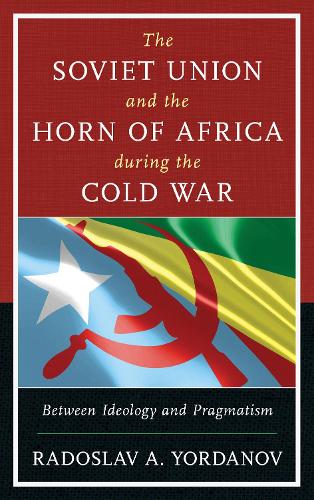
The Soviet Union and the Horn of Africa during the Cold War: Between Ideology and Pragmatism
(Hardback)
Available Formats
Publishing Details
The Soviet Union and the Horn of Africa during the Cold War: Between Ideology and Pragmatism
By (Author) Radoslav A. Yordanov
Bloomsbury Publishing PLC
Lexington Books
17th March 2016
United States
Classifications
Professional and Scholarly
Non Fiction
International relations
European history
African history
327.47063
Physical Properties
Hardback
328
Width 161mm, Height 237mm, Spine 29mm
685g
Description
At the height of the Cold War, Soviet ideologues, policymakers, diplomats, and military officers perceived the countries of Africa, Asia, and Latin America as the future reserve of socialism, holding the key to victory over Western forces. The zero-sum nature of East-West global competition induced the United States to try to thwart Soviet ambitions. The result was predictable: the two superpowers engaged in proxy struggles against each other in faraway, little-understood lands, often ending up entangled in protracted and highly destructive local fights that did little to serve their own agendas. Using a wealth of recently declassified sources, this book tells the complex story of Soviet involvement in the Horn of Africa, a narrowly defined geographic entity torn by the rivalry of two large countries (Ethiopia and Somalia), from the beginning of the Cold War until the demise of the Soviet Union. At different points in the twentieth century, this regionarguably one of the poorest in the worldattracted broad international interest and large quantities of advanced weaponry, making it a Cold War flashpoint. The external actors ultimately failed to achieve what they wanted from the local conflictsa lesson relevant for U.S. policymakers today as they ponder whether to use force abroad in the wake of the unhappy experiences in Iraq and Afghanistan.
Reviews
The author delves deeply into available postCold War Russian and East European archives to present a thorough nuanced study of an aspect of Soviet policy in the developing world, namely in the strategically located Horn of Africa. Yordanov (Columbia) takes the correct approach to understanding such policies by analyzing them at local, regional, and global levels. Including useful insights on internal Soviet bureaucratic and political decision making, he also reminds us how Moscow utilized its East European allies to help implement competition at Americas expense, a gradualist approach valuing stability and predictability over direct confrontation or ideological extremes. Over time, the Americans and Soviets shifted clients between Ethiopia and Somalia showing how realpolitik was practiced in the region; it was a tug-of-war era in which Third World leaders sought to extract concessions from competing powers while not falling completely under their control. The author might have said more about how the Cold War experience set the stage for todays regional instability. Summing Up: Recommended. Upper-division undergraduates through professionals. * CHOICE *
The broadening of our perspective constitutes the most important plus of Yordanovs intensive research. By embedding the dramatic culmination in a multi-perspective analysis of its pre-history and long-term impacts on Soviet-east African relations, the study enriches our understanding of the twisted development of Soviet Third World politics under changing international and domestic conditions. . . By underlining the varying shades and subtle distinctions that marked Soviet approaches toward single Third World countries and societies at different times, this book highlights the importance of concrete case studies and warns against premature generalizations concerning Soviet strategies. * Slavic Review *
No part of sub-Saharan Africa was more deeply involved in the Cold War, and over a longer period, than the Horn. Drawing especially on the archives of the Soviet Bloc countries, Radoslav A. Yordanov is able to offer extensive new insights and information into this important arena of superpower competition. -- Christopher Clapham, Cambridge University
Radoslav A. Yordanovs book, The Soviet Union and the Horn of Africa during the Cold War, is undoubtedly the most significant piece of scholarly research produced on this subject in the last two decades. Drawing on formerly secret documents from the countries of the former Warsaw Pact and Africa, this meticulously researched book sheds a great deal of new light on the rise and decline of Soviet involvement in the Horn of Africa, a key Cold War battleground for the superpowers and their proxies. It is a groundbreaking study. -- Robert G. Patman, University of Otago
Those who tried to track the intricacies of Soviet policy in the Horn forty years ago, as well as those interested today in the ways in which the Cold War played out in Africa, will find Radoslav A. Yordanovs book to be a masterful assessment of thirty years of Soviet policy. The author has culled the archives of all the former Socialist states, as well as the United States and Great Britain, for evidence, and paints a careful and detailed picture of the factors that went into Soviet policy and the shifts in that policy that local political developments required. The scholarly community owes Dr. Yordanov a serious debt of gratitude for producing what will remain the definitive study of Soviet policy in the Horn of Africa. -- Roger E. Kanet, University of Miami
Author Bio
Radoslav A. Yordanov is visiting scholar at the Harriman Institute of Columbia University.
